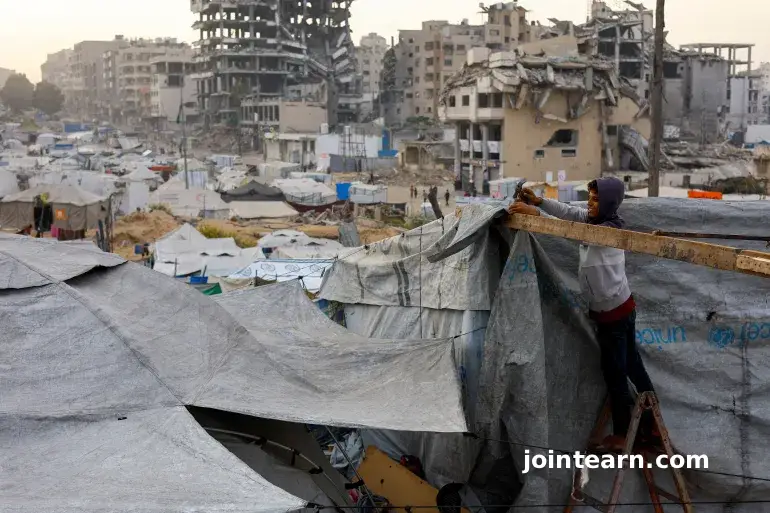
The devastation in Gaza starkly contrasts the ambitious global promises made this week at the Second World Summit for Social Development (WSSD) in Doha, where world leaders pledged to “leave no one behind.”
For residents like Yassir Shaheen, who leads the charity Humanity First UK in Gaza, the reality on the ground is grim.
“Many nights, we lay awake, our lips dry, our hearts pounding in fear, feeling as though the sky itself was collapsing on us,” Shaheen said, describing life after two years of relentless Israeli attacks on the Strip.
Gaza’s Destruction and Humanitarian Crisis
The Gaza Strip has been left in ruins, with its economy shattered, infrastructure destroyed, and thousands of families displaced. According to the Gaza Health Ministry, more than 68,000 Palestinians have been confirmed killed, with around 10,000 still buried under rubble.
While some prices for basic goods have fallen since the worst periods of the conflict, Shaheen said essential items remain six to ten times higher than pre-war levels. Only 4,453 trucks of aid were allowed entry by Israel on Thursday, far below the daily quota stipulated in the ceasefire agreement that began on October 10.
The destruction is near total. UN estimates indicate 92% of residential buildings have been damaged or destroyed since October 2023, generating 55-60 million tonnes of rubble. Shaheen described it starkly:
“Schools, clinics, shops, homes … everything that allowed life to function has been reduced to dust.”
Global Pledges vs Local Reality
At the WSSD in Doha, member states reaffirmed commitments made at the 1995 Copenhagen summit, including:
- Eradicating poverty
- Ensuring decent work and social integration
- Expanding access to education and healthcare
UN Secretary-General Antonio Guterres called the Doha Political Declaration a “booster shot for development.” Yet for Gaza, these promises feel far removed from daily reality.
Rohan Talbot, director of advocacy at Medical Aid for Palestinians (MAP), emphasized:
“Development is impossible while Palestinians are denied the most basic rights to safety, movement, and dignity.”
Aziz Hafiz, head of Humanity First UK, added:
“No declaration, however eloquent, can substitute for the fundamental right to freedom and security. Development cannot flourish in isolation from justice and peace.”
Humanitarian Needs and Rebuilding Challenges
For Palestinians in Gaza, daily survival remains a struggle. Thousands live in displacement camps with flimsy tents, facing exposure to wind, rain, and scorching sun. Shaheen noted the immense scale of the challenge:
“How long will it take just to remove the rubble? And if clearing debris takes years, how long before rebuilding can even begin?”
Rebuilding is about more than infrastructure. It is about restoring lives, dignity, and a sense of safety. Shaheen explained:
“They do not just want buildings to rise again, but life to return.”
The ceasefire has already been violated 80 times according to Gaza authorities, with over 240 Palestinians killed, including dozens of children, since the agreement took effect.
MAP’s Talbot stressed that justice and accountability are critical for sustainable recovery:
“Declarations and summits will remain hollow unless matched by political will to address the root causes of Gaza’s suffering, including Israel’s ongoing military occupation and blockade. Palestinians must have self-determination to lead their recovery and define their future.”


Leave a Reply